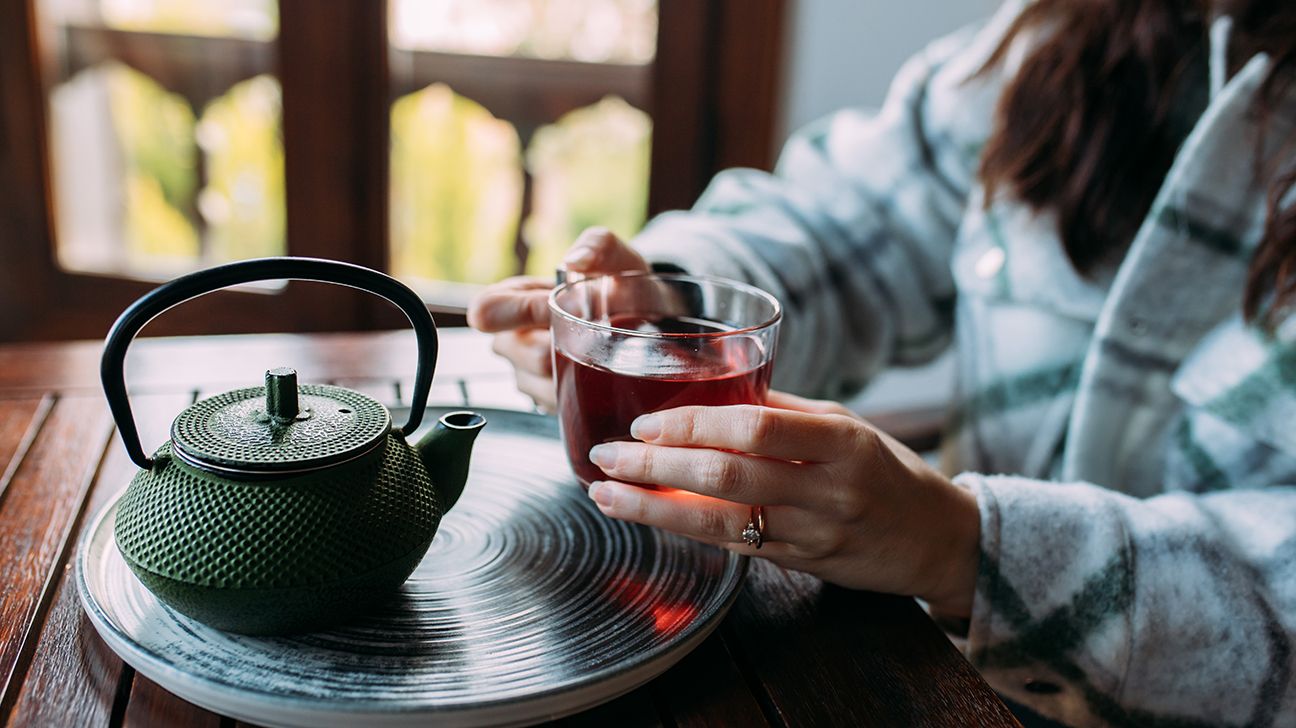Red raspberry leaf tea is rich in antioxidants and is anecdotally used to ease symptoms of premenstrual syndrome. It may also offer benefits during pregnancy, but more research is needed.

Red raspberry is a plant native to Europe and parts of Asia. While it’s best known for its sweet, nutritious berries, red raspberry leaves are also loaded with nutrients. They’re often used to make herbal teas for medicinal purposes.
For centuries, tea made from red raspberry leaves has been used to treat various health ailments and induce labor during pregnancy.
This article reviews the purported health benefits and potential side effects of red raspberry leaf tea.
Red raspberry leaves are high in many nutrients and may offer several health benefits.
Good source of antioxidants
Red raspberry leaves are a good source of antioxidants. They’re rich in antioxidant compounds like ellagitannins, hydroxybenzoic acids, and anthocyanins,
In addition, the leaves contain small amounts of ellagic acids, which have been shown to have anticancer effects in some test-tube studies, such as this one from
While more research is needed on the cancer-fighting potential of red raspberry leaves, current results are promising.
May ease symptoms of premenstrual syndrome
Red raspberry leaf tea is especially popular due to its possible benefits for pregnant people. However, it also seems to help people who menstruate.
Some people use red raspberry leaf tea to treat symptoms of premenstrual syndrome (PMS), such as cramping, vomiting, nausea, and diarrhea. However, this is mostly supported by anecdotal evidence.
While more research is needed and there is currently no specific recommendation on the quantity to drink, sipping on some red raspberry leaf tea may relieve some of the discomforts of your menstrual cycle.
Herbal teas have been used by midwives throughout history to help with some of the negative symptoms associated with pregnancy and labor.
Some people suggest that red raspberry leaf tea might help decrease labor time and reduce the use of birthing interventions. Others use the herbal remedy to help with nausea and vomiting during early pregnancy as well.
However, more high quality studies are needed.
May help shorten labor and reduce interventions
Many people claim that red raspberry leaf tea helps shorten the length of labor.
A 2021 review of the literature found that, while a large proportion of pregnant women take raspberry leaf during pregnancy to facilitate an easier childbirth, there is very little evidence to date to confirm the efficacy of this practice.
A
May reduce interventions and complications of childbirth
There is some evidence to show that drinking red raspberry leaf tea may allow for a labor with fewer complications.
A small
A smaller proportion of women in the raspberry leaf cohort needed interventions or help with labour (such as epidural anaesthesia, instrumental births, and caesarean section). A larger portion of the raspberry leaf cohort had vaginal birth and shorter labor.
Researchers concluded that the raspberry leaf was strongly predictive of women not needing medically augmented labor, but more research is needed to confirm this benefit.
Red raspberry leaf tea appears to be safe for most people.
When side effects appear, they tend to be mild. However, they’re still important to consider.
According to some anecdotal reports, red raspberry leaf tea may have laxative properties and could cause softer stools in certain people.
Also, it’s important to note that there are no official recommendations for how much you should drink.
Whether or not you are pregnant, talk with a doctor before consuming red raspberry leaf tea. And discontinue use immediately if you experience any adverse side effects, including spotting or Braxton Hicks contractions during pregnancy.
Red raspberry leaf tea is often claimed to decrease labor time, strengthen the uterus, and improve labor outcomes in people who are pregnant. However, the research backing up these claims is sparse.
Red raspberry leaves are rich in antioxidants and are anecdotally believed to offer other benefits, including relief from premenstrual symptoms.
Still, more research needs to be done to accurately understand the health benefits of red raspberry leaf tea.




